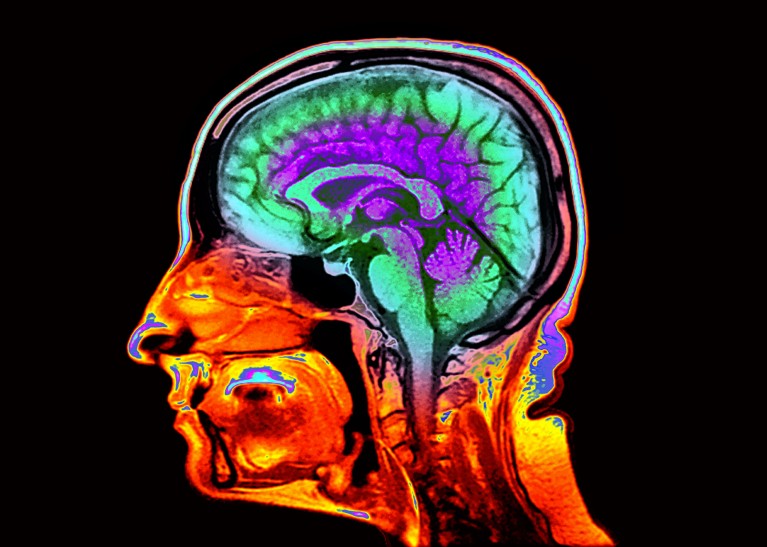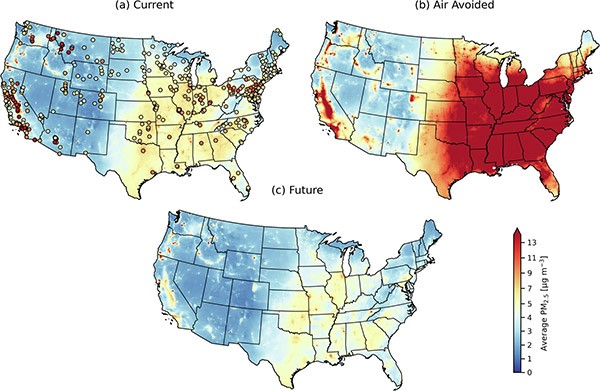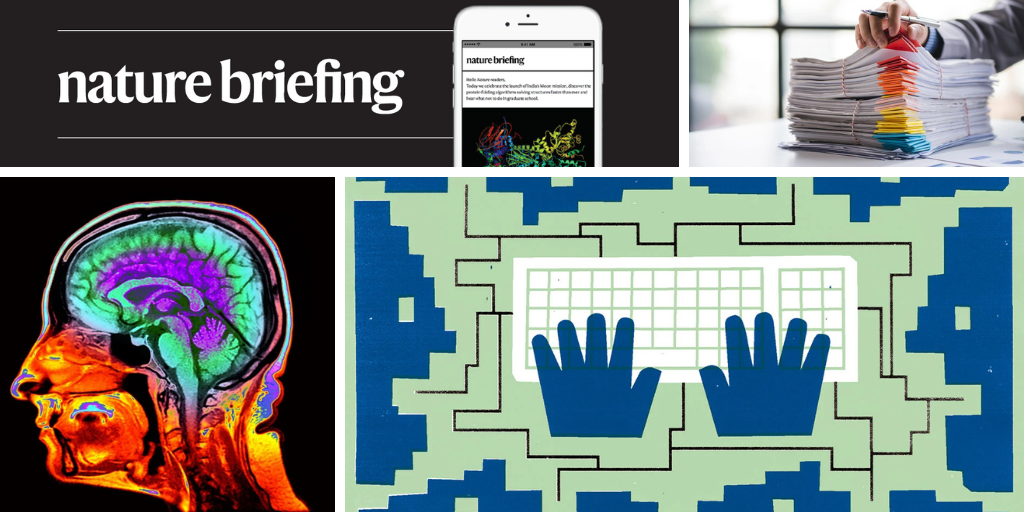You have full access to this article via your institution.
Hello Nature readers, would you like to get this Briefing in your inbox free every day? Sign up here.

A magnetic resonance imaging scan (pictured, artificially coloured) of the brain can detail the risk of memory loss and other cognitive difficulties.Credit: Zephyr/SPL
Telltale features in standard brain images can reveal how quickly a person is ageing. In a study of more than 50,000 brain scans, researchers found that features such as the thickness of the cerebral cortex — a region that controls language and thinking — can predict how quickly a person’s ability to think and remember will decline with age. The study is part of efforts to develop ‘clocks’ that determine a person’s biological age. “Imaging offers unique, direct insights into the brain’s structural ageing, providing information that blood-based or molecular biomarkers alone can’t capture,” says computational biologist Mahdi Moqri.
Reference: Nature Aging paper
A system called distributed peer review, which requires researchers who apply for a round of funding to review some of the other applications, cuts the time it takes to review grant applications by more than half. The system leapfrogs the usually lengthy process of funders hunting for and later chasing external peer reviewers. Safeguards help to prevent participants from gaming the system: in a small proof-of-concept trial, participants only reviewed applications from researchers competing for a separate pool of funding, and there were no reciprocal pairs of reviewers, to prevent pairs quietly colluding to boost one anothers’ scores between pools.
Reference: UK Metascience Unit report
Budget cuts by the administration of President Donald Trump have forced the operating arm of the influential US National Academies of Science, Engineering and Medicine into laying off staff and reducing advisory committees. At the same time, many members are arguing that academy leaders have gone too far to accommodate the Trump administration — and done too little to defend science. Academy president Marcia McNutt says she faces a “Faustian dilemma” in which challenging the administration could bring about the end of the organization.
A satellite designed to detect sources of the most powerful greenhouse gas has been lost 15 months into its 5-year mission. Developed by a coalition of environmentalists, scientists and aerospace engineers, MethaneSAT aimed to pinpoint methane leaks and use Google algorithms to map oil and gas infrastructure where leaks can originate — information that many fossil fuel companies keep to themselves. It’s not known what caused the satellite to go silent. Nevertheless, MethaneSAT gathered lots of useful data and showed how a spacecraft can be deployed by a nonprofit organization.
Features & opinion
An emerging trend in AI-assisted science uses teams of chatbot specialists to develop a scientific idea as a lab team might do. “It’s not really fundamentally that different than having more colleagues, in some sense,” says computer scientist Rick Stevens, “except that they don’t get tired, and they’ve been trained on everything.” Scientists that Nature tasked with testing such a system said that it was fast and helpful, although some felt it lacked the spark of real conversation and didn’t always come up with non-obvious points.
At many leading study destinations in Western countries, the climate for international students is cooling, notes education researcher Maia Chankseliani. “As someone who was once a foreign student and who now researches how higher education can drive social and civic transformation, I worry that this shift in attitude will have consequences far beyond university campuses,” she writes. “International students are not simply add-ons to national research systems; they help to drive them.” Removing student inflows from immigration statistics and protecting the right to cross-border study through a global treaty could help to maintain the benefits of intellectual openness flowing.
Infectious disease physician Jake Scott curates an open database of hundreds of vaccine trials involving more than 6 million participants. In a short but extensively referenced article, he steps up to rebut some of the statements made by top US health official Robert F. Kennedy Jr, who has brought vaccine misinformation and conspiracy theories into the heart of US public-health policy.
Infographic of the week

In the United States, the passage of the 1970 Clean Air Act heralded a new dawn for the regulation of dangerous fine particulate matter (PM2.5). The warm-coloured areas on these maps show where PM2.5 air pollution exceeds the World Health Organization-recommended maximum of 5 μg m−3 now (a), how much worse it would have been without Clean Air Act policies (b), and how good it could be with those polices and net-zero emissions from transport and energy production. (npj Clean Air | 10 min read) (Simon Rosanka et al./npj Clean Air)
Today I’m revelling in the spectacular nature photography celebrated by the California Academy of Sciences’ BigPicture Photography Competition. From baby octopuses to fearless Arctic wolves, these are stunning reminders of the boundless beauty of the wild.
Let me know your favourite — plus any other feedback on this newsletter — at [email protected].
Thanks for reading,
Flora Graham, senior editor, Nature Briefing
With contributions by Jacob Smith
• Nature Briefing: Careers — insights, advice and award-winning journalism to help you optimize your working life
• Nature Briefing: Microbiology — the most abundant living entities on our planet — microorganisms — and the role they play in health, the environment and food systems
• Nature Briefing: Anthropocene — climate change, biodiversity, sustainability and geoengineering
• Nature Briefing: AI & Robotics — 100% written by humans, of course
• Nature Briefing: Cancer — a weekly newsletter written with cancer researchers in mind
• Nature Briefing: Translational Research — covers biotechnology, drug discovery and pharma


